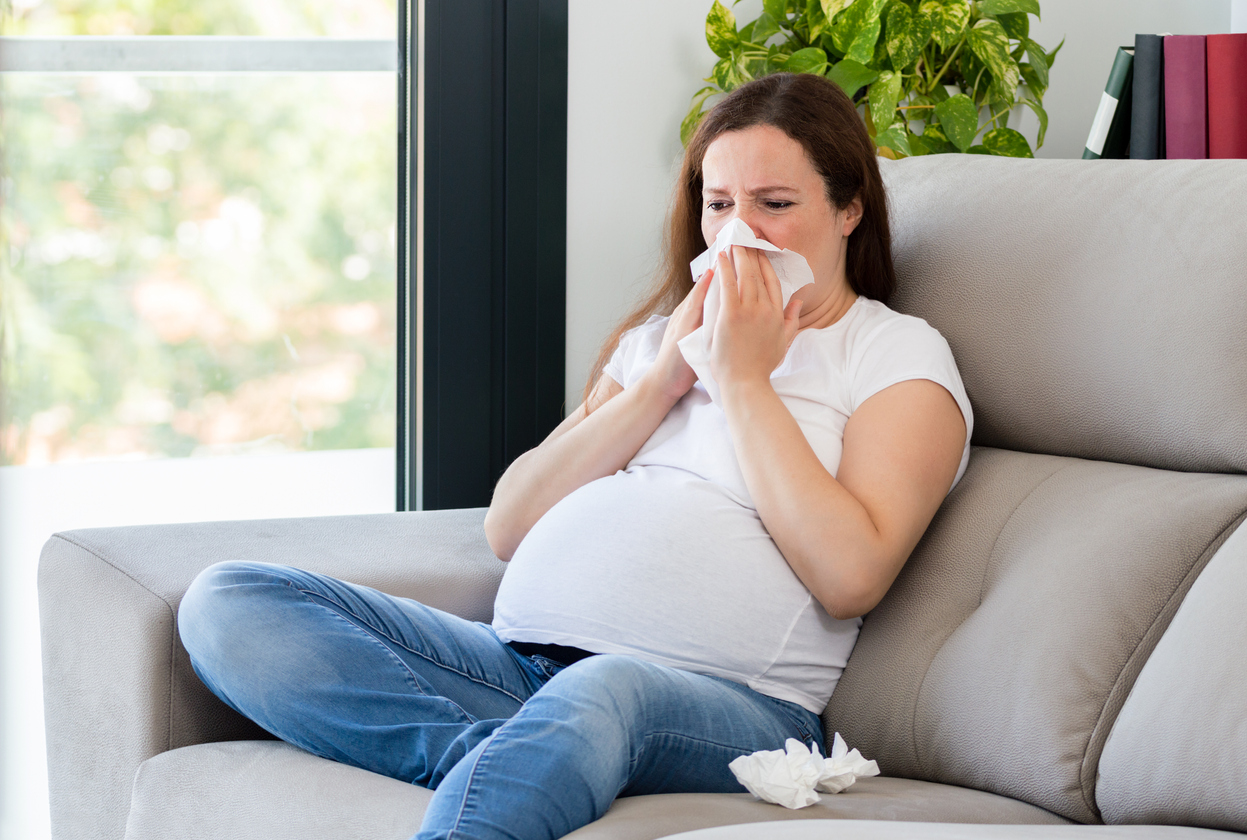Respiratory viruses, including influenza and COVID-19, are not fun, but if you are pregnant, they can present new concerns and risks. Not only can respiratory illnesses make it harder to catch your breath, but they also can cause problems for your pregnancy and your developing child.
Your body will go through several changes during the course of your pregnancy, and one major change is that your immune system will temporarily weaken. This may sound like an odd time for your immune system to repress, but it’s actually by design. Your immune system weakens so that your body doesn’t view your fetus as a foreign object and attack it. While that’s wonderful news for your developing child, it also leaves you more susceptible to infections.
As a result, pregnant women are most susceptible to respiratory infections during the first 12 weeks of their pregnancy. But that doesn’t mean you’re in the clear after the first trimester. Your immune system is still working at a diminished capacity, so you’ll want to do what you can to avoid respiratory illnesses at all stages of your pregnancy.
Common respiratory illnesses
Influenza (the flu)
Because of your weakened immune system, not only are you more susceptible to catching the flu, but the effects of the illness also can be harsher, and this can cause issues for your developing child. Severe cases can lead to premature births, developmental issues, hospitalizations, or even death. Fortunately, it is safe for pregnant women to receive the flu shot, and it can help to protect both mother and unborn child. Talk to your provider about getting a flu shot if your pregnancy will take you through the worst of flu season, which is usually between October and March.
COVID-19
The effects of COVID-19 also may be more significant in pregnant women due to their repressed immune system. While we don’t have as much data on the effects of COVID-19 during pregnancy as we do about the flu, research suggests that it, too, can lead to pre-term births. COVID-19 also can lead to severe breathing issues during labor, which can significantly complicate the delivery process. Medical data have shown that COVID-19 vaccines and boosters are safe for pregnant women to receive, so make sure you are up to date on your vaccines.
Respiratory Syncytial Virus (RSV)
Much as been written about the uptick in RSV cases recently. While RSV typically is not as serious for pregnant women as COVID-19 or the flu, it can cause major issues for newborns. In adults, symptoms usually resemble a mild cold and cough, but adults can usually clear their throats or discharge mucus buildup. Newborns can’t easily do that, which is why RSV can cause severe breathing difficulty and even lead to death in infants.
Pneumonia – Pneumonia during pregnancy, or maternal pneumonia, often develops when a bacterial infection spreads to the lungs. It also can result from viruses, such as the flu or chickenpox. Pneumonia can cause your body’s oxygen levels to fall, leading to decreased oxygen to the uterus, which can affect your child’s development.
Preventing exposure and serious illness
While modern medicine is getting better at treating pregnant women who develop these respiratory illnesses, prevention is almost always preferred to treatment. So, how can you prevent viral respiratory infections? Here are some suggestions:
- Eat a healthy diet full of different vitamins and minerals
- Wash your hands regularly
- Get your flu shot and COVID-19 vaccine
- Avoid kissing or touching newborns on their face or hands
- Limit contact with sick individuals
- Avoid contact with large groups of people during flu season
- Get plenty of restful sleep
If you have any questions about what you can do to avoid respiratory illnesses during your pregnancy, or you want to connect with a team that can help keep your pregnancy progressing as expected, reach out to the providers at Oakdale ObGyn today at (763) 587-7000.

